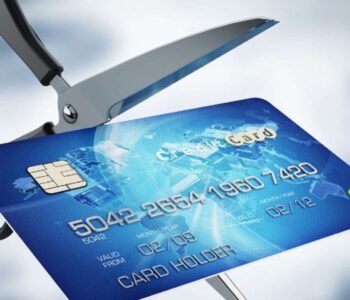 Credit Comparison
Credit Comparison
Top Cards for Low-Interest Debt Consolidation
- March 12, 2024March 12, 2024
- by Morgan Newton
Consolidating debt can be a smart financial move to simplify payments and reduce interest costs. Using a low-interest credit card for debt consolidation is one option to consider. In this article, we’ll explore some of the top cards for low-interest debt consolidation and how they can help you manage your finances more effectively.

Understanding Debt Consolidation
Before exploring particular credit cards, it’s crucial to grasp the concept of debt consolidation. This process involves merging several debts into one, either through a single loan or by transferring balances onto a credit card. The aim is to simplify payments and potentially reduce your total interest rate. This simplification can make it easier for you to handle your debts effectively.
Benefits of Low-Interest Credit Cards
Low-interest credit cards offer several advantages for debt consolidation. They typically come with lower annual percentage rates (APRs) compared to traditional credit cards, which can save you money on interest charges. Additionally, consolidating debt onto a single card can simplify your monthly payments and help you track your progress towards becoming debt-free.
Top Cards for Low-Interest Debt Consolidation
a. Chase Freedom Unlimited
This credit card provides an appealing opportunity for individuals looking to consolidate high-interest debt due to its enticing offer of a 0% introductory APR on balance transfers for the initial 15 months. During this period, users can transfer existing balances from other cards onto this one without incurring interest charges, providing a reprieve from accruing additional debt costs. By taking advantage of this promotional period, cardholders can make substantial progress in paying down their debt without the burden of accumulating interest, making it an attractive option for those seeking to manage their finances more effectively.
b. Citi Simplicity Card
The Citi Simplicity Card offers a straightforward solution for debt consolidation, as it eliminates late fees and penalty APRs. This feature provides peace of mind to cardholders, knowing they won’t incur additional charges for missed payments. Additionally, the card offers a generous 0% introductory APR on balance transfers for the initial 18 months. During this period, users can transfer existing balances to the Citi Simplicity Card without accruing interest, allowing them to focus on paying down their debt without the added pressure of accumulating interest charges. This combination of features makes the Citi Simplicity Card an attractive option for individuals seeking a hassle-free approach to managing their debt and achieving financial stability.
c. Discover it Balance Transfer
This particular card presents an appealing opportunity for debt consolidation with its noteworthy offer of a 0% introductory APR on balance transfers spanning 18 months. This feature allows cardholders to transfer existing balances from other cards without incurring interest charges for an extended period, providing a significant window to focus on debt repayment. Moreover, the card offers additional benefits in the form of cashback rewards on purchases. This dual advantage allows individuals to not only consolidate their debt effectively but also earn rewards on their everyday spending. By leveraging this combination of features, cardholders can streamline their debt management efforts while simultaneously enjoying financial perks, making it an excellent choice for those seeking to consolidate debt while maximizing rewards.
Considerations When Choosing a Card
When selecting a low-interest credit card for debt consolidation, there are a few factors to consider. Pay attention to the length of the introductory APR period, as well as any balance transfer fees associated with transferring existing debt. Additionally, consider your credit score and financial goals to ensure the card aligns with your needs.
Tips for Successful Debt Consolidation
Once you’ve chosen a low-interest credit card for debt consolidation, it’s essential to have a plan in place for paying off your balance. Create a budget to allocate funds towards debt repayment each month, and avoid adding new charges to the card. By staying disciplined and focused on your financial goals, you can successfully eliminate your debt and achieve greater financial freedom.
Conclusion
Consolidating debt with a low-interest credit card can be an effective strategy for managing your finances and reducing interest costs. By choosing the right card and implementing smart debt repayment strategies, you can take control of your financial future and work towards a debt-free life. Evaluate your options carefully, and don’t hesitate to seek guidance from a financial advisor if needed. With dedication and perseverance, you can overcome your debt and build a stronger financial foundation for the future.
You will find the following information useful:















